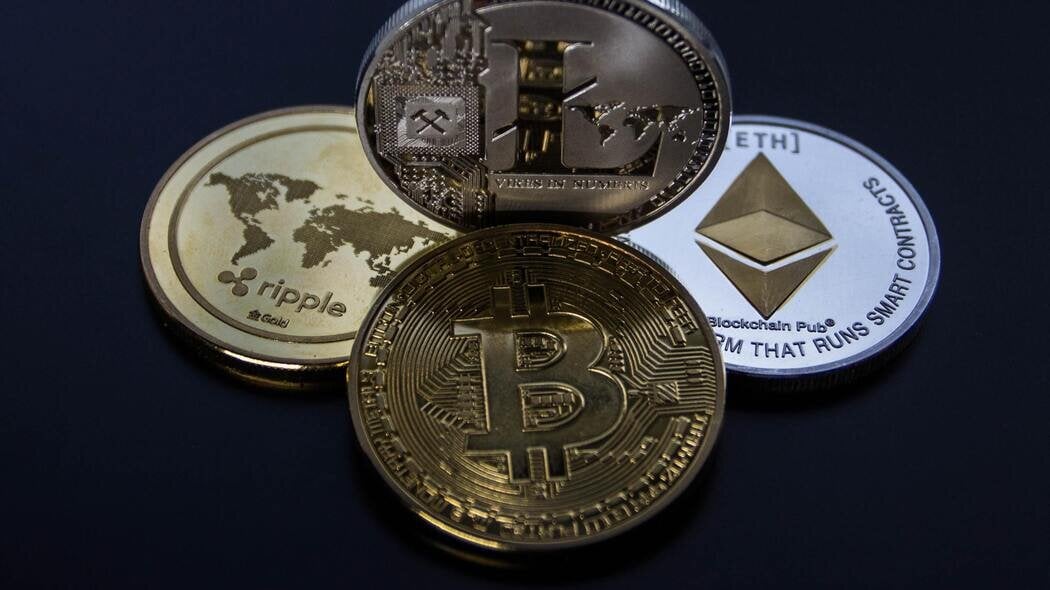Cryptocurrency has revolutionized the financial world, offering new opportunities for individuals to store and transfer digital assets securely. However, it's crucial to recognize that the crypto landscape has risks, even the most secure cryptocurrency. Understanding these risks is the first step toward securing your digital wealth. The most common security concerns regarding cryptocurrencies include hacking, phishing attacks, malware, and theft. Hackers constantly develop new strategies to exploit vulnerabilities and gain unauthorized access to users' funds. Phishing attacks, for example, involve fraudulent attempts to obtain sensitive information, such as passwords or private keys, by posing as legitimate entities. Additionally, malware poses a significant threat to crypto holders. Malicious software can infiltrate devices and steal sensitive data or gain control over wallets, allowing attackers to transfer funds without the owner's consent. The theft risk is also prevalent, mainly if users do not employ robust security measures. PlasBit understands the significance of secure cryptocurrency storage and have implemented advanced security measures on our platform to protect your digital assets from threats like hacking and unauthorized access. We ensure your funds are safe and secure by leveraging cutting-edge encryption technology and cold storage.
Safeguarding Your Investments: The Importance of Security
In a digital world, securing your cryptocurrency investments is paramount. Fortunately, there are several measures you can take to protect your digital assets effectively:
Creating a strong and unique password
Establish a strong password that combines uppercase and lowercase letters, numbers, and special characters. Avoid using easily guessable information such as birthdays or names. Furthermore, it's essential to use a unique password for each crypto-related account to minimize the impact of a potential breach.
Implementing two-factor authentication (2FA)
Two-factor authentication adds more security to your accounts. By requiring a second verification step, usually through a separate device or app, 2FA significantly reduces the risk of unauthorized access. Enable 2FA wherever possible to fortify your cryptocurrency holdings.
Utilizing hardware wallets for offline storage
Hardware wallets are physical devices designed to store private keys offline securely. These wallets isolate sensitive information from potential online threats, protecting against hacking and malware. By keeping your private keys offline, you reduce the risk of unauthorized access and ensure the safety of your digital assets.
By following these principles, you can significantly enhance the security of your cryptocurrency investments. However, staying informed about emerging threats and best practices in the rapidly evolving crypto landscape is essential. We will explore the most secure cryptocurrency available and introduce you to PlasBit. Our innovative platform offers a safe, confidential solution for holding and using cryptocurrencies.
Critical Principles for Securing Your Digital Assets

Strengthening Your Defenses: Implementing Two-Factor Authentication
Implementing two-factor authentication (2FA) is crucial when protecting your digital assets. This additional security measure provides extra protection for your cryptocurrency accounts. Here's how it works:
Something You Know
It is the first factor of authentication, such as a password or a PIN, that only you know.
Something You Have
The second factor involves a physical device like a smartphone or a hardware token that generates a unique code or receives a push notification. This code or information is required to complete the authentication process.
Enabling 2FA offers a significant security advantage. Even if an attacker obtains your password, they still need physical access to your second-factor device to access your account. This additional step makes it much harder for unauthorized individuals to compromise your accounts.
Most cryptocurrency exchanges and wallets provide the option of 2FA. It is highly recommended to enable this feature wherever available to protect your digital assets, even the most secure cryptocurrency.
Hardware Wallets: Offline Storage for Maximum Security
Hardware wallets are physical devices specifically designed to securely store private keys offline, offering the highest level of security for your digital assets. Here's how they work:
Secure Element
Hardware wallets incorporate a secure element, a specialized chip that securely generates and stores private keys. This chip is isolated from the computer or mobile device, protecting it from potential malware attacks.
Transaction Signing
When initiating a transaction, the hardware wallet securely signs it using the private key stored within the device. The signed transaction is then sent back to the computer or mobile device for broadcasting to the network.
User-Friendly Interface
Hardware wallets typically have user-friendly interfaces that make it easy to manage multiple cryptocurrencies. They often include built-in screens and buttons to confirm transactions and navigate the device's settings.
A hardware wallet can securely store your private keys offline, safeguarding them from potential online threats. This approach significantly reduces the risk of hacking, malware, and unauthorized access to your digital assets.
We will explore the most secure cryptocurrencies, including Bitcoin, Ethereum, and Monero. These cryptocurrencies have established themselves as leaders in security and innovation within the crypto space.
Exploring the Most Secure Cryptocurrency in the Market
The Gold Standard of Security in Cryptocurrency
Bitcoin, often called the king of cryptocurrencies, is renowned for its robust security features and is the most secure cryptocurrency. It has established itself as the gold security standard within the crypto market. Here are some key factors that contribute to Bitcoin's reputation for safety:
Blockchain Technology
Bitcoin operates on a decentralized blockchain, a distributed ledger that records all transactions. This transparency and immutability make it extremely difficult for malicious actors to manipulate or alter transaction data.
Proof-of-Work Consensus
Bitcoin's consensus mechanism, known as proof-of-work (PoW), ensures the security and integrity of the network. Miners compete to solve complex mathematical puzzles, requiring significant computational power. This process makes it highly improbable for an attacker to rewrite transaction history or execute fraudulent transactions.
Longevity and Network Strength
Bitcoin has operated since 2009 and has built a robust network of miners and nodes worldwide. The longer a cryptocurrency has been around and the more extensive its network, the more secure it becomes. Bitcoin's longevity and network strength contribute to its overall security.
Ethereum: Combining Security and Innovation with Smart Contracts
Ethereum is another prominent cryptocurrency emphasizing security while offering innovative features such as smart contracts. Here are the reasons why Ethereum is considered among the most secure cryptocurrencies:
Solidity Programming Language
Ethereum's smart contracts are written in Solidity, designed to create secure and reliable decentralized applications (dApps). Solidity incorporates security features to mitigate common vulnerabilities, reducing the risk of code exploits.
Ethereum Virtual Machine (EVM)
Smart contracts on Ethereum run on the Ethereum Virtual Machine (EVM). This sandboxed environment isolates and executes code securely. The EVM protects malicious code execution and prevents unauthorized access to sensitive data.
Continuous Improvement
The Ethereum community actively works on improving security measures. Regular audits, bug bounties, and upgrades like the upcoming Ethereum 2.0 aim to enhance the platform's security and scalability.
Monero: Prioritizing Privacy and Security for Users
While much of the security effort is directed towards safeguarding assets, privacy and security must be addressed when striving for the utmost secure cryptocurrency. Monero, a cryptocurrency that centers on privacy, addresses these issues with the following attributes:
Ring Signatures
Monero utilizes ring signatures to obfuscate the source of transactions. This cryptographic technique mixes multiple users' signatures, making it challenging to trace a specific transaction back to an individual.
Stealth Addresses
Monero employs stealth addresses, which generate one-time addresses for each transaction. These addresses ensure that only the intended recipient can determine the source of funds, enhancing privacy and reducing the risk of transaction tracking.
Confidential Transactions
Monero uses confidential transactions to hide transaction amounts. This feature ensures the transaction value remains private, providing users with an additional security layer.
With a high emphasis on privacy and security, Monero stands as one of the safest cryptocurrency choices for individuals who desire an extra layer of privacy in their dealings.
A Secure and Confidential Crypto Solution
Finding reliable platforms prioritizing security and confidentiality is essential in the dynamic world of cryptocurrencies. At PlasBit, we stand out as a trusted solution, offering a range of crypto debit cards and wallets designed to ensure the safety and privacy of your digital assets.
We provide a user-friendly interface that caters to beginners and experienced users alike, making it accessible to everyone interested in entering the crypto space. Whether new to cryptocurrencies or well-versed in the field, at PlasBit, we offer a secure gateway to kickstart your crypto journey.
Moreover, at PlasBit, we offer multiple options for securely holding and managing your cryptocurrencies. With us, you can confidently keep and utilize cryptocurrencies while ensuring safety and security. We employ advanced encryption techniques and security protocols to safeguard your information, ensuring your transactions are secure and confidential.
We have explored the fundamental principles of cryptocurrency security, including the importance of creating robust passwords, implementing two-factor authentication, and utilizing hardware wallets. We have also discussed the most secure cryptocurrencies in the market, such as Bitcoin, Ethereum, and Monero, each offering unique security features.
As you embark on your cryptocurrency journey, remember to prioritize security, stay informed about emerging threats, and choose reputable platforms to ensure the safety of your digital assets.







